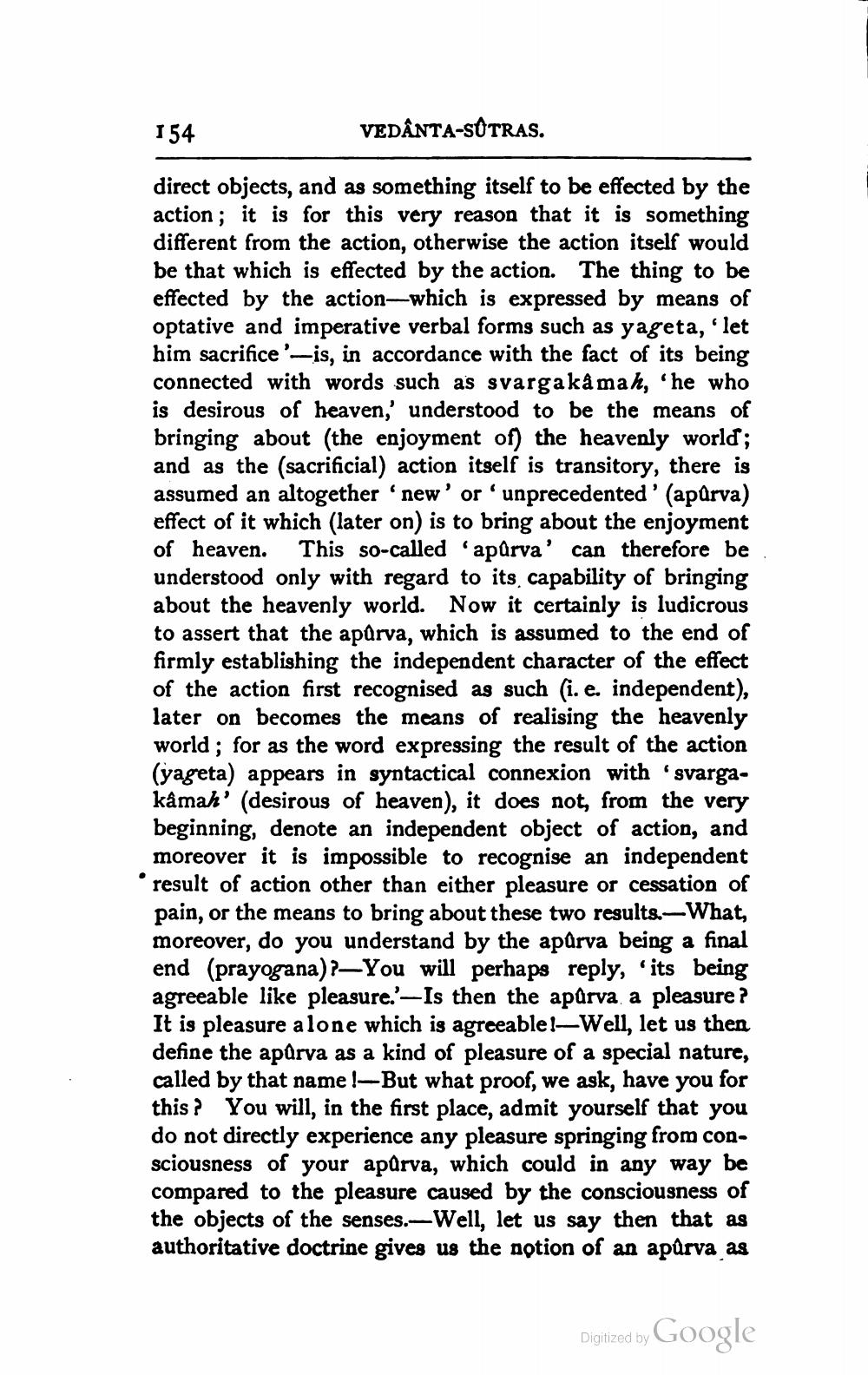________________
154
direct objects, and as something itself to be effected by the action; it is for this very reason that it is something different from the action, otherwise the action itself would be that which is effected by the action. The thing to be effected by the action-which is expressed by means of optative and imperative verbal forms such as yageta, 'let him sacrifice '-is, in accordance with the fact of its being connected with words such as svargakâmah, 'he who is desirous of heaven,' understood to be the means of bringing about (the enjoyment of) the heavenly world; and as the (sacrificial) action itself is transitory, there is assumed an altogether 'new' or 'unprecedented' (apûrva) effect of it which (later on) is to bring about the enjoyment of heaven. This so-called 'apûrva' can therefore be understood only with regard to its capability of bringing about the heavenly world. Now it certainly is ludicrous to assert that the apûrva, which is assumed to the end of firmly establishing the independent character of the effect of the action first recognised as such (i. e. independent), later on becomes the means of realising the heavenly world; for as the word expressing the result of the action (yageta) appears in syntactical connexion with 'svargakâmah' (desirous of heaven), it does not, from the very beginning, denote an independent object of action, and moreover it is impossible to recognise an independent result of action other than either pleasure or cessation of pain, or the means to bring about these two results.-What, moreover, do you understand by the apûrva being a final end (prayogana)?-You will perhaps reply, its being agreeable like pleasure.'-Is then the apûrva a pleasure? It is pleasure alone which is agreeable!-Well, let us then define the apûrva as a kind of pleasure of a special nature, called by that name !-But what proof, we ask, have you for this? You will, in the first place, admit yourself that you do not directly experience any pleasure springing from consciousness of your apûrva, which could in any way be compared to the pleasure caused by the consciousness of the objects of the senses.-Well, let us say then that as authoritative doctrine gives us the notion of an apûrva as
Digitized by Google
VEDANTA-SUTRAS.
·




